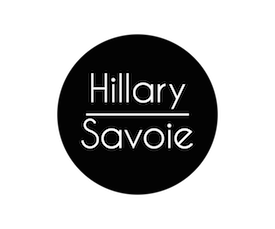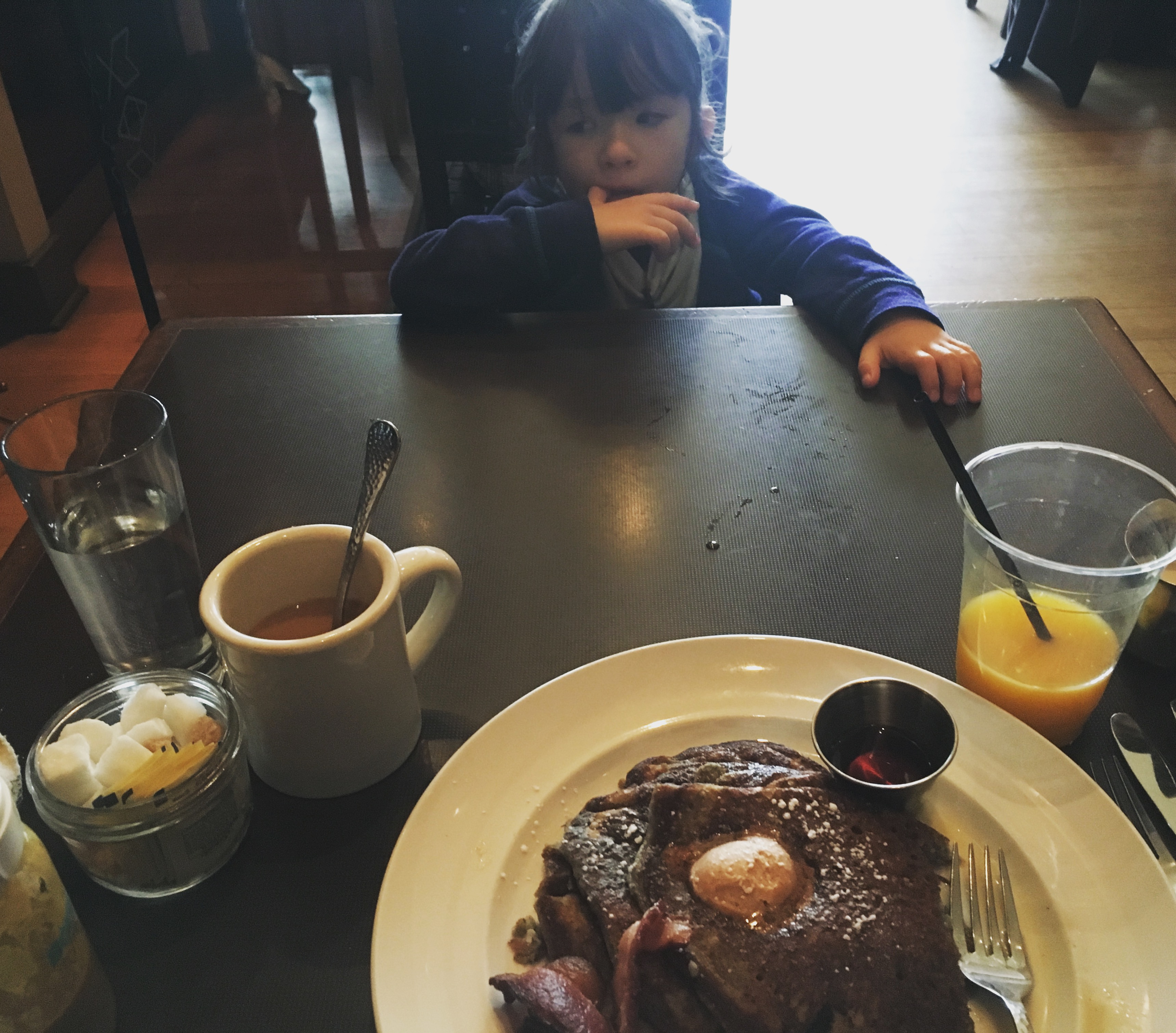The other day there was an ambulance coming, lights spinning, down our street. I knew better, of course, but for a moment I thought they were coming for us. Involuntarily, I glanced at Esmé, playing in the next room, half expecting to see her needing to be rescued.
Instead her slender body balanced on hands and knees, moving from one loud illuminated toy to another one that awaited her hands to bring it to life. Her back arched under its own weight. Her left hand turning inward, elbow locking.
I smiled at her, but I my eyes feel wet.
***
I’m always a bit of a mess around this time of year…
I have written about this before, but in the days leading up to the anniversary of Esmé’s cardiac arrest, it often seems like my body, my heart, knows that it is coming before my head does. It feels as though I am doing my damnedest to forget the day—to let the anniversary go by unmarked, but there is some kind of internal clock inside of me that winds tighter and tighter, and then, just as I’m about to burst, I figure out why.
April 29th, 2011—my daughter almost died.
And every single year I change for a few weeks. Any other time of the year I can still close my eyes and fall backward in time to those moments, still able, in a Proust-ian nightmare to smell the industrial cleaner in the air. Able to watch my stunned self standing in the ER, not fully understanding that my daughter was dying in front of me.
This time of year, however, the memory feels further away, inaccessible, and yet, just under the surface…as if I am lost inside my own interior landscape.
***
I walked down the hallway of the hospital.
It is a hallway I know like the road I grew up in. Seven years ago, after my daughter was transferred to this hospital from the community hospital where she’d arrested, I walked this hallway multiple times a day. I traveled between the café, the hotel, the car, and my daughter’s bed in the ICU as we waited to see if she’d come back from her cardiac arrest.
We’d moved in here, and adapted, as if trapped in a terrifying neighborhood that we couldn’t yet dream of escaping.
Only this day, seven years later, I’m not here on a return visit for Esmé. Instead I’m holding the image of my father’s grey face in the ER bed where I’ve left him waiting to be admitted. It is different, but today it is hard for it not to be the same. I know this place too well.
Suddenly I’m crying there, unable to wait until I seal myself into the quiet safety of the car. I seem to be unable to stop crying these days.
***
This time of year, I cannot time travel the way I usually do.
I can’t revisit that day and run through the series of “what ifs” that are scratched into the walls of my mind. I run through them, like a NASA-worthy safety check, when I cannot sleep. Or in my dreams. Or as I sweat at the gym, as if I might power past them. I run them at the sight of a little baby who doesn’t struggle to draw breath.
However, right now? Right now it seems that I almost don’t know what happened that day. It is as if there is no moon or streetlights and the darkness obscures everything—even the things I know by heart.
I’m not sure if I’m just so raw that I won’t let myself find those bruised places inside of me, out of fear that one touch on the wrong spot will leave me bloodied beyond recovery.
I’m not sure if the anger I feel, the gratitude I feel, the kindness I feel, the vulnerability I feel, the rage I feel on these days every year just dominates everything else.
Or maybe I just have secretly prayed long enough for relief that some omnipotent being with a wild sense of humor lifts this from me right at the moment I reach for it. (Only to drop it back on me the next time I hear the thick sound of Esmé breathing through an oncoming sickness.)
There must be some kindness behind it…something to learn…something to better know. I will keep digging for it when I can.
***
Esmé wheels with purpose.
My daughter can navigate her classroom in her beautiful purple wheelchair with rough dogged purpose, typically. Bumping hard into things (or people) until they move (or are moved) from her path.
This morning her favorite classmate is a few paces away, sitting in a chair with his back to us. He is crying hard. The squawking sound he makes fills the room…as it does most mornings. Esmé loves him despite this (because of this?).
Also, like many mornings, as soon as I have peeled her light jacket off of her, she puts her hands on her wheels, ready to roll around.
This morning, though, rather than roll across the room to her schedule or toward the smartboard, she rolls over to her friend. She slows and ever so gently bumps into the back of his chair. Then she reaches her hand up and rests it softly on his back. She holds there…as if to say the words I speak to her so often, “It’s ok, I’m here. I’m right here.”
I swell with pride.
***
I think about kindness a lot.
I try to build my community from kindness…but I don’t think I fully understood what kindness was until the wake of Esmé’s near death.
As a little girl (and, far too often, as a grown woman), I was told that kindness was a sort of pliability. While I was naturally loving and empathetic, there were parts of me that were just too loud, too pushy, too honest, too much to be kind. At least to be kind in the right sort of way.
I grappled with that all my life, until I realized it wasn’t me who was wrong.
Sometimes kindness is all softness and pliability, of course. However, sometimes the kindest act is a fierce one. Sometimes it is two nurses standing up to a doctor…saving a dying baby from arresting in the back of an ambulance.
Sometimes it is a mother raising her voice to be heard.
Sometimes it is saying the true things no one wants to hear.
Or facing the parts of you that you don’t want to know.
For me it is a kindness to revisit those moments seven years ago, rather than to hide from them. And it is a kindness when others visit them with me, rather than dismiss them. It is a kindness to show up once a year at the spot where I carried my blue limp daughter through the doors of the ER. It is a kindness to hone that fear and rage and vulnerability to a beam of destruction and protection.
***
We arrive in the downtown neighborhood near the hospital where everything came apart.
I am careful to avoid even looking at the coffee shop where I watched in paralyzed horror that day as my tiny, pale, sweaty daughter began her slow descent into respiratory distress.
Instead we go elsewhere. As we enter, a young woman carelessly walks into Esmé’s leg and wheelchair while chatting with the handsome young man at her side. As she meets the resistance against her shin, she glances down blankly at Esmé’s petite frame, and says nothing before side-stepping as though she’d knocked into a table, rather than a person.
“Excuse you,” I say. My tone is one that flies out of me occasionally, involuntarily. It is the one that reminds me of my grandmother’s voice as she said, “You look like shit” to a loved one. It reads as all hard shell and sharp edges, but somewhere, inside is uncertainty and pain.
The girl blushed just slightly, and spoke the word “Sorry,” to me…but not to Esmé. I want to sit down and cry.
***
I go back to the spot every year in this kind of blind stumble.
I’m never sure that I am going there, until I find myself in the neighborhood, pulled, as if by electromagnetic force. Sometimes I imagine that this is how others feel on a pilgrimage. I am pulled there by some combination of love and fear and gratitude and awe.
I used to call ahead of time, but my voice broke too often as I tried to explain myself—uncertain of who I was speaking to…sometimes a person who was there that day, sometimes a person who had heard of the stiff woman and sweet disabled child who show up once a year to haunt the waiting room of the ER. Sometimes a person who cannot understand anything I am talking about.
The first year I brought a cake to say thank you…a kind of offering to explain my presence. One year I called to say I was coming, and then couldn’t bring myself to make the trip for days.
Then I just started finding my way there when it happened. Always within a couple days of the anniversary I’d be pulled there, navigating unconsciously like when you find yourself at home, but cannot remember driving through the familiar streets.
***
At brunch I sit with Esmé—aware that we draw looks.
Esmé’s beautiful chair, her swinging legs, her hands banging against the table. Me, pulling all things on the table close to me—including the juice the waitress assumed was for Esmé and the plate of food the server thought we’d be sharing.
I feed Esmé drops of orange juice from the end of a straw as if she was a baby bird. My heart seizes every time she swallows. I want her to taste things—all things. I want her to have the world of flavors at her fingertips. But, of course, this is how it all started: her swallowing. Her lungs slowly filling as she swallowed.
What a silly thing the swallow. What a simple, involuntary thing. Until it is not.
I’m suddenly eager to head to the hospital. This, sitting here with Esmé, on this day, is too much. I wonder whether the nurse, Peggy, will be there this year. It seems like a silly question, because, she always is. No matter the date that we arrive, she is there. She’ll come out, happy to see us, eager to talk again about the day, and what she learned from Esmé, and how very much Esmé has grown.
As I am chugging down the last of my coffee, the waitress comes over to tell me that the brunch is on them. I try not to cry as I explain why this is a particularly beautiful day to offer such a kindness.
***
These are my neighborhoods.
These places—these hallways and waiting rooms, these kindnesses and time-travels, these scarred landscapes and carefully observed swallows—these are the places I make my life since that day seven years ago. They are the neighborhoods I inhabit.
Sometimes I’d like to move. Other days I feel pity for people who don’t know about the secrets of calling such a place home. Besides, it’s always a buyers’ market in this neighborhood.



Hilary even with all it’s pains, this was a beautifully told story. If prompted to write this based on our mere prompt this week, I love what you did with it – that these are your neighborhoods. Love the, “Excuse you!” Mama Bears roar when necessary!
Thank you, Kenya! It was something I was working on last week–and the prompt helped me figure out how to frame it. Does that make sense? And, oh goodness, do I roar sometimes…it can be so hard not to. 🙂
Tears, friend. Beautifully told, as always. What a painful (and glorious) time of year to remember the events of watching your sweet girl… visiting her. You did a great job combining the memory of your father, too. I remember seeing your meal on Facebook, and being bummed that people do look. Wonder. Judge. Hugs to you and I’m so glad you wrote this week. It’s an amazing piece of writing. xo
Thank you Kristi–you are always so kind. It is such a pleasure to find myself wrapped up in FTSF again. I do so love it. It makes me move the writing forward, rather than sit on it. Thank you for doing what you do. It is funny about the meal…It was such a visceral realization of what we must look like. I didn’t feel so judged, as I felt confusing. Like we were aliens doing something so completely different that it was almost funny…just no one but Ez and me got the joke!
I feel like I have been drawn into a special place to read such a poignant piece. Thank you for writing this and sharing it. Your last paragraph is a little how I feel at being able to be in a nursing home visiting my mother and being among others who are visiting their loved ones. We become a neighborhood and people who seem to understand the path each is taking.
It is amazing the communities we can form in the places we find ourselves. I feel so often like I can pick people out of a crowd–people who are from my community…people who know about caring, fear, rage, and love in a very particular way. I could imagine how a nursing home community involves so many little moments of understanding like that. Thank you for commenting!